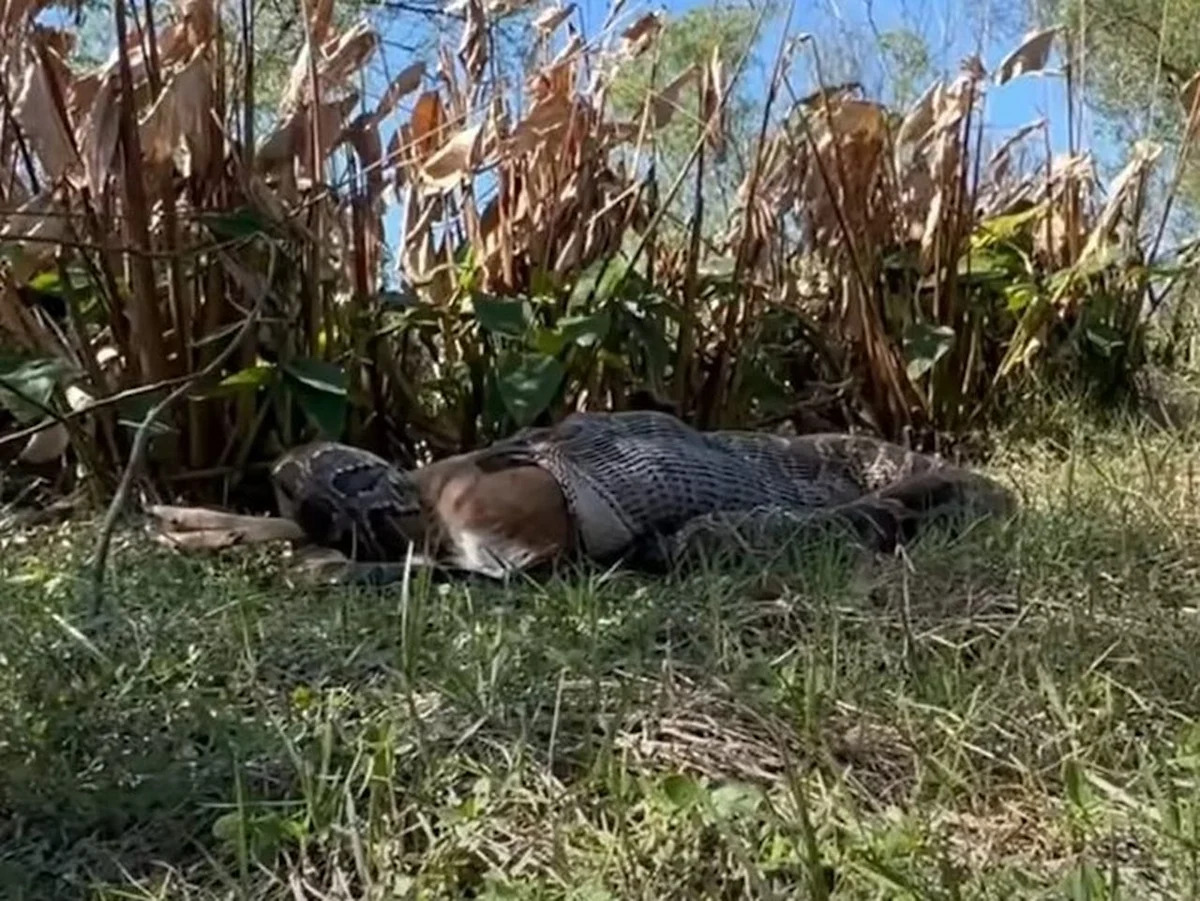Burmese pythons continue to be an invasive species in Florida, but declining deer numbers in the state have concerned scientists given that the grazers form an important diet of local predators, including the critically endangered Florida panther.
However, scientists came upon a promising discovery that could positively impact those concerning statistics.
Researchers spent a year tracking the digestion of several large female females, which they believed would most likely eat a deer, to better understand the ecological impacts of the invasive snake.
They were ecstatic to witness one beast regurgitate an entire deer earlier this year — despite the temperatures in South Florida falling below 10C, well below the typically comfortable threshold for the cold-blooded constrictors.
The snakes find it difficult to function in the cold and their biological processes, including digestion, slow down until the temperature warms back up.
The scientists detailed coming across one python “while it was ingesting a 77 pound (35-kg) white-tailed deer” — which measured at 66.9% of the snake’s mass.
After the cold night in the preserve, scientists revisited the snake and discovered she was lump-free, swimming in the shallow water of a willow swamp with the minimally digested white-tailed deer that it had vomited up nearby.
“They found her very empty, and they were able to smell a deer not far away and put two and two together,” Mark Sandfoss, senior author of the study and a biologist at the U.S. Geological Survey (USGS), told Live Science.
The scientists noted in their study published in the journal Ecology and Evolution that it marked what they believed was the “first observation of a free-ranging Burmese python vomiting a deer within the invasive range without direct disturbance from humans.”
RECOMMENDED VIDEO
“Deer in Big Cypress have been declining for several years, and we believe pythons to be a factor in that,” lead author Travis Mangione, a biologist at the National Park Service (NPS), told LiveScience.
If the conditions are too cold, a snake’s meal can start decomposing in its stomach faster than the snake can digest it, causing bacteria to build up.
The snake’s response is to vomit to eliminate the bacteria, so with the recent finding, the scientists believe it to be a positive sign that it regurgitated the deer, despite the temps.
In recent weeks, Florida officials have deployed more than 100 robot rabbits to help control invasive Burmese pythons in the Everglades, as the snakes decimate native species with their voracious appetites.
The fake, furry bunnies are designed to mimic rabbits’ movements, scent and heat signature, in hopes of the pythons hunting them over real rabbits.
“Pythons have complicated biology, and we’ve never really dealt with an animal like this at this scale — this large, invasive ectotherm, terrestrial,” Sandfoss said.
“Pythons are constantly doing things I never imagined, but this is such a beautiful moment where science and basic principles line up with field observations.”

